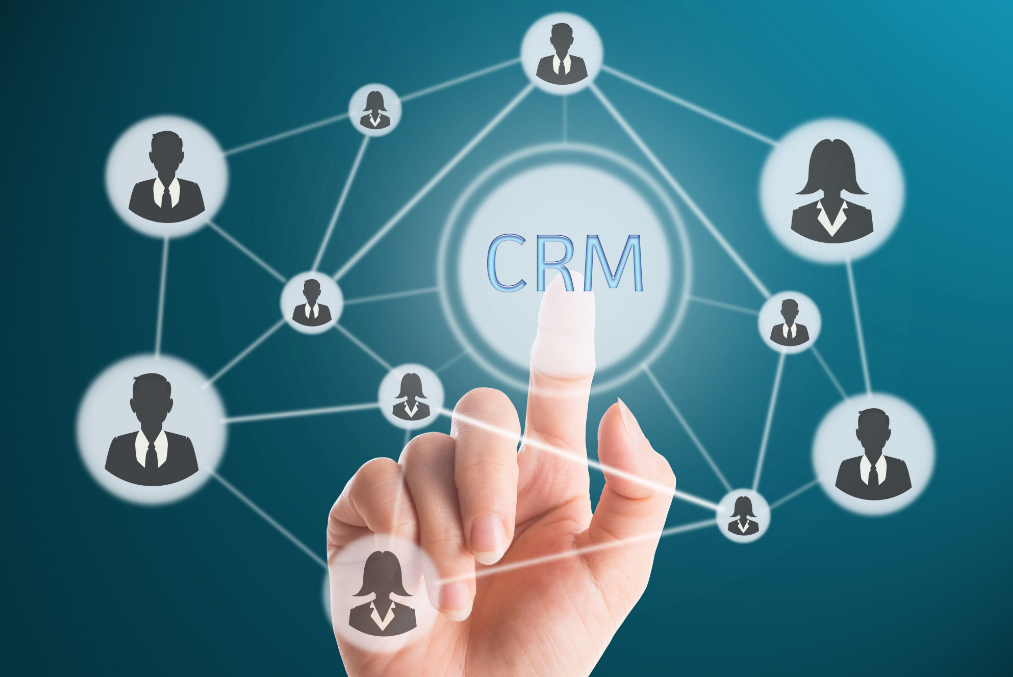
A recent study estimates that 87% of home buyers use a real estate agent. At the same time, 94% of those buyers reported that they were satisfied with their experience. Satisfied customers are often repeat customers who likely provide referrals, thereby making them crucial to the success of today’s real estate professionals.
Investing in a quality real estate CRM is a great way to ensure you’re the agent your repeat customers contact when they need to buy or sell a home. Keep reading to learn what real estate CRM is and how it can help you out beat your competition.
Defining Real Estate CRM: What it is and what it does
Real estate CRM is customer relationship management (CRM) and is usually paired with marketing automation.
Real estate CRM is software designed to help agents, realtors, real estate companies, and brokers manage their businesses. This CRM database helps with sales, marketing, information management, reporting, and customer relationships. CRM software is beneficial for agents by supporting their lead nurturing activities, helping them to track their pipeline KPIs and close deals, and enhancing their customer support.
CRM solutions are not mandatory for most real estate agents and brokerages in the real estate industry, but it is a valuable tool for increasing efficiency and improving marketing efforts. Customer relationship management (CRM) software helps businesses fine-tune their contact management processes and grow their new leads and existing customer relationships. For example, with CRM software, agents and brokers can see a customer’s preferences and with whom and where their customer has interacted. This allows room for targeted marketing.
The most helpful CRM software includes marketing automation so you can seamlessly align your sales and marketing efforts including email marketing. Marketing automation software provides agents and brokers with the functionality to develop and maintain meaningful customer relationships using customized communications including drip campaigns. Easy-to-build email campaigns often include customized email templates that are sent when specific triggers occur.
In a nutshell, a CRM is software that provides an interface between organizations and their customers or clients. It improves lead management and allows an organization to better understand its customers’ needs and engage with them more effectively.
CRMs are often used by big and small businesses that sell products or services. But they can also be used by nonprofits, government agencies, and other organizations.
Benefits of real estate CRM software
Real estate CRM helps agents improve marketing, track leads, and automate sales processes in their real estate businesses. Real estate agencies can also increase sales by creating more personalized marketing campaigns and emails.
With more leads and appointments, it’s easier to be more productive and get more work done. Efficiency is vital for agents since every minute counts.
Real estate CRMs are excellent tools for managing a large sales volume. More sales mean more income for agents. Agents and realtors can use customizable reports to track details about each transaction and measure meaningful data, like sales cycles and purchasing trends that may help determine if a listing price was too high or too low.
Additionally, management tools like real estate CRM can help agents reduce their time spent on administrative tasks by helping to streamline their lead generation and transaction management-related tasks.
A CRM also helps agents stay organized and focus on specific tasks that are most important by calling out priority customers and deals in customizable reports and easily accessing records and data of previous and potential clients.
Real estate software helps agents track their sales and marketing activities. As a result, agents can plan their workload better and stay on top of it. It can also help them keep track of client information, like address and contact information, to automate processes.
Types of real estate CRMs
CRM software comes in various forms, depending on your business’s needs. There are two main types of CRM software: cloud-based software and on-premise CRM software.
Cloud-based CRM software is best for companies that want to access their data anywhere, and on any device, via a cloud-based online portal. This is important for companies that operate across multiple locations or departments. A cloud-based solution is often most cost-effective because the software publisher manages all updates and technical details so agents and brokers do not have to invest in additional hardware or technical expertise.
On-premise CRM software is a type of software that businesses host on their own computers. On-premises CRM software solutions typically offer an added sense of control and security as agents deploy and manage the software.
Some CRM systems offer a hybrid approach with a cloud sync, giving agents and brokers the best of both worlds; the control and security of an on-premises solution, and the flexibility of a cloud platform.
Click here to learn about the security, flexibility, and affordability of Act!’s on-premises, cloud, and hybrid CRM solutions.
How to Implement Real Estate CRM
Real estate agents and brokers can start using a real estate CRM immediately, however, there are some benefits to implementing an all-in-one CRM and marketing automation system as part of a broader real estate growth strategy. Well-devised sales and marketing strategies help you grow your real estate business by implementing and adjusting your efforts based on real-time reports.
First, start your real estate CRM implementation with a full audit of your business. Doing this will help you identify how you are currently operating and how it’s performing. You can use this information to better decide which type of real estate CRM to use. Start by auditing your current practices. Ask yourself the following questions:
- What data do you currently have as paper records?
- What activities does your team currently perform?
- What is collected for data?
- What processes are currently automated?
After completing your audit, implement your business’s most crucial CRM features to get your business up and running with the technology it needs to operate at its best.
Next, it’s time to incorporate your marketing strategy. Use your all-in-one CRM and marketing automation tool to streamline the setup of automated email marketing campaigns, follow-ups to website engagement, and create custom landing pages.
Are you ready to enhance your real estate business with CRM?
Real estate CRM is an essential asset for today’s brokers and agents. Real estate software can help you reach new interested buyers, schedule appointments, announce open houses, track your customers’ engagement and manage your workflows.
CRM tools help you stay on top of your customers and lead by easily accessing personalized information about them including past purchases, home equity, and listing price information. A real estate CRM also helps you manage your workflows from the first showing to inspections and closings, and accurately forecast future pipeline and revenues.
It’s crucial to choose a CRM that fits your needs and budget and that can grow with you over time. Some CRMs require significant upfront investment and potentially offer features you may never use, while other lower-cost options may be scalable and let you subscribe to a perfect-fit solution for your real estate business today.





